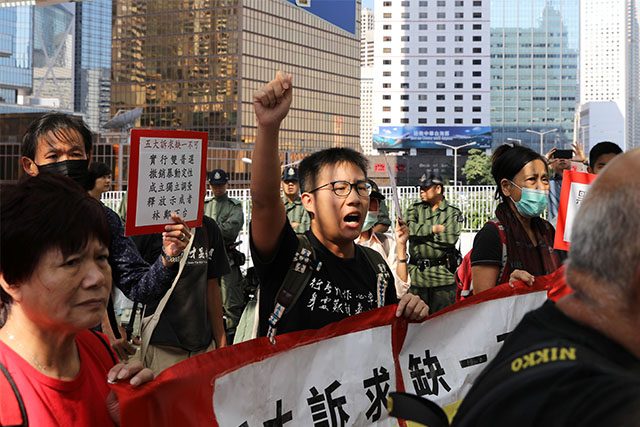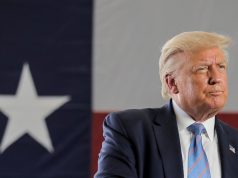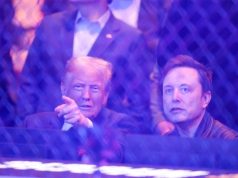
HONG KONG — The U.S. House of Representatives has unanimously passed three pieces of legislation supporting the pro-democracy protests that have engulfed Hong Kong for more than four months.
The Hong Kong Human Rights and Democracy Act, the most consequential of the bills, would put the former British colony’s special treatment by the United States under tighter scrutiny.
The Protect Hong Kong Act, also passed on Tuesday, seeks to block the sale to Hong Kong of tear gas and other crowd control items, while a non-binding resolution condemns Beijing’s “interference” in Hong Kong affairs.
What next?
For the two acts to become law, they must pass votes in the Senate and then be signed by President Donald Trump.
Senator Jim Risch, the Republican chairman of the U.S. Senate Foreign Relations Committee, said on Wednesday he hoped the bills would move shortly. An aide said a vote could come as soon as next week.
How big a deal is it?
The new Hong Kong Human Rights and Democracy Act is seen as a largely symbolic amendment but it could potentially alter the nature of relations between the United States and Hong Kong. It could also exacerbate tensions between Washington and Beijing.
On Wednesday, China’s foreign ministry accused U.S. lawmakers of “sinister intentions” to undermine Hong Kong‘s stability and warned that bilateral relations would be damaged should the measures become law.
Beijing promised Hong Kong a “high degree of autonomy” for 50 years when it regained sovereignty over the city in 1997, but protesters say freedoms have been steadily eroded.
The new act is an amendment to a 1992 law that has underpinned U.S. relations with Hong Kong, affording the territory special status as separate from China — in trade, transport and other areas.
Under the 1992 law, the U.S. president can issue an executive order suspending elements of Hong Kong‘s special status if the president determines that the territory is “not sufficiently autonomous” from Beijing.
The new act requires the U.S. Secretary of State to annually certify to Congress whether Hong Kong “is sufficiently autonomous to justify special treatment by the United States… including the degree to which Hong Kong‘s autonomy has been eroded due to actions taken by the Government of China.”
If the Secretary of State deems Hong Kong insufficiently autonomous, that could give the president ammunition for suspending any U.S. laws that set Hong Kong apart, leaving it subject to the same rules that apply to the rest of China.
What effect might the new law have?
From a business perspective, one of the most important elements of Hong Kong‘s special status has been the fact that it is considered a separate customs and trading zone from China.
That has meant, for instance, that trade war tariffs don’t apply to exports from Hong Kong.
If Hong Kong becomes just another Chinese port, companies that rely on Hong Kong as a middleman or for trans-shipping are likely to take their business elsewhere.
Trade between Hong Kong and the United States was estimated to be $67.3 billion in 2018, with the U.S. running a $33.8 billion surplus — its biggest with any country or territory, according to the Office of the U.S. Trade Representative.
The American Chamber of Commerce in Hong Kong has said any action to change the status of Hong Kong “would have a chilling effect not only on U.S. trade and investment in Hong Kong but would send negative signals internationally about Hong Kong‘s trusted position in the global economy.”
— Reporting by John Ruwitch; Editing by Raju Gopalakrishnan









